Connect with us...
Keynote speakers
Special guest speaker: Tom Bruns, UC Berkeley
Monday, August 3, 2015, from 7:30 to 9 pm
Prochnow Auditorium
Free and open to the public
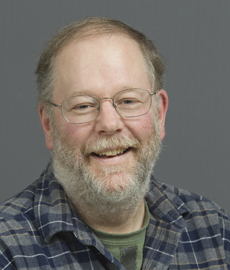
Tom Bruns received his PhD from the University of Michigan in Botany in 1987. Tom went on to a postdoctoral position at the University of California Berkeley, where he joined the faculty in 1989. His research is focused on fungal ecology and systematics. In the area of mycorrhizal ecology, he is best known for his work on ectomycorrhizal community ecology, spore banks, and epiparasitic plants, and for the development of widely used molecular methods. He has published over 150 scientific papers.
He is a recent past president of the Mycological Society of America. Tom is also a fellow of the American Association for the Advancement of Science, the California Academy of Science, and the Mycological Society of America. He teaches introductory and advanced courses on fungi at Berkeley and has won distinguished teaching awards for his efforts from the College of Natural Resources and the Mycological Society of America.
More information about Tom Bruns
Conference keynote speakers
A plenary talk will be given each morning of the conference (except Wednesday) by a leader in the field of mycorrhizal research. The names of keynote speakers will be added as invitations are accepted.
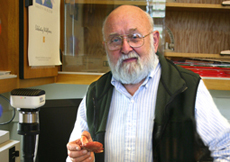
James Martin Trappe (Monday keynote speaker)
James Martin Trappe is a professor at Oregon State University and expert in the field of North American truffle species. He has authored or co-authored 450 scientific papers and written three books on the subject. The phenomenon of mycorrhizae is something that Trappe has studied for a long time. “It’s a symbiotic relationship between various fungi and tree roots. Often the tree and the fungus cannot survive without the other, so understanding this relationship is essential to understanding forest ecology and has many implications in reforestation,” according to Trappe.
More information about Jim Trappe
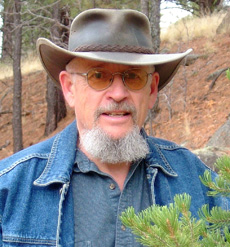
Thomas Whitham (Monday keynote speaker)
Tom Whitham is Regents’ Professor in the Department of Biological Sciences at Northern Arizona University, a Fellow of the American Association for the Advancement of Science, and Executive Director of the Merriam-Powell Center for Environmental Research. Whitham is a pioneer in the field of community genetics. In 2011, Whitham received the prestigious Eminent Ecologist Award by the Ecological Society of America—the group’s highest honor—for his outstanding body of work and his training of a new generation of scientists. Whitham served as the primary scientific advisor of an award-winning PBS documentary, A Thousand Invisible Cords: Connecting Genes to Ecosystems, which was aired on more than 150 stations in 2012. Whitham has authored or co-authored more than 220 papers in scientific journals, including Science and Nature.
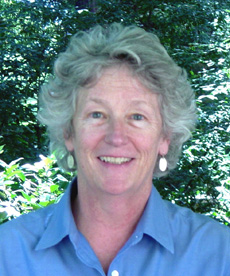
Mary Firestone (Tuesday keynote speaker)
Mary Firestone is a soil microbial ecologist and Professor at the University of California, Berkeley. She has degrees in microbiology and soil science from Michigan State University. Mary began her microbial studies as a physiological ecologist researching the metabolic and cellular bases of bacterial processes such as nitrous oxide production and decomposition of pesticides. Gaining perspectives of ecosystem ecology, she worked toward understanding the biogeochemistry of carbon and nitrogen cycling by interfacing the microbial bases of nutrient transformation with the functioning of ecosystems. Mary and her students have worked primarily in annual grasslands and conifer forests of California and wet tropical forests of Puerto Rico. More recently, she has begun to employ the concepts of community ecology because molecular techniques now provide the types of data necessary to apply ecological concepts to soil microorganisms. The application of these concepts holds the potential to provide structure and clarity to huge and overwhelmingly complex sets of data describing microbes in their natural habitats.
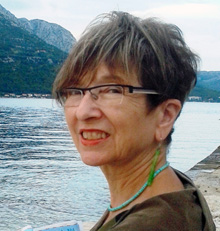
Paola Bonfante (Thursday keynote speaker)
Paola Bonfante is Professor of Plant Biology at the University of Torino (Italy). Her primary research interest is the biology of mycorrhizas, the symbioses which are central in the balance of natural and agronomical ecosystems. Starting from the seventies and after a seminal training period in Paris at the École Normale Supérieure (1980), Paola spent a long part of her scientific activity studying the intimate interactions that occur between fungi and plants as well as between bacteria and fungi, using cellular and molecular approaches. Applying DNA technologies, early in the nineties, she provided contribution to the knowledge of mycorrhizal diversity in natural as well as in cultivated fields. She has discovered a group of endobacteria which live inside mycorrhizal fungi and may modulate some of the functional traits of their fungal hosts. At the moment she is interested in looking at AM fungi as a relevant component of the plant microbiota, trying to understand how they interact with the other soil microbes and how they have an impact on their host plant also at systemic level.
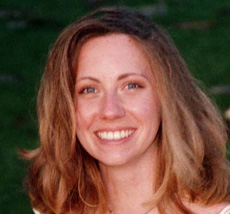
Kathleen K. Treseder (Friday keynote speaker)
Kathleen K. Treseder is a field ecologist who uses molecular techniques, nanotechnology, isotopes, and data syntheses to examine the role of fungi in ecosystems. Her overarching goal is to improve predictions of future trajectories of global change, by incorporating feedbacks governed by fungi. She is a Professor and Chancellor’s Fellow in the Department of Ecology and Evolutionary Biology at the University of California Irvine. She received her PhD from Stanford University and served as a postdoctoral researcher at University of California Riverside. Her group’s recent field sites include ecosystems in Alaska, Bavaria, California, Costa Rica, Guyana, Hawaii, and Panama. She has published more than 70 peer-reviewed publications in journals including Nature, Science, and Ecology Letters.
ICOM8 plenary talk: Mycorrhizal fungi may mitigate ecosystem responses to global change